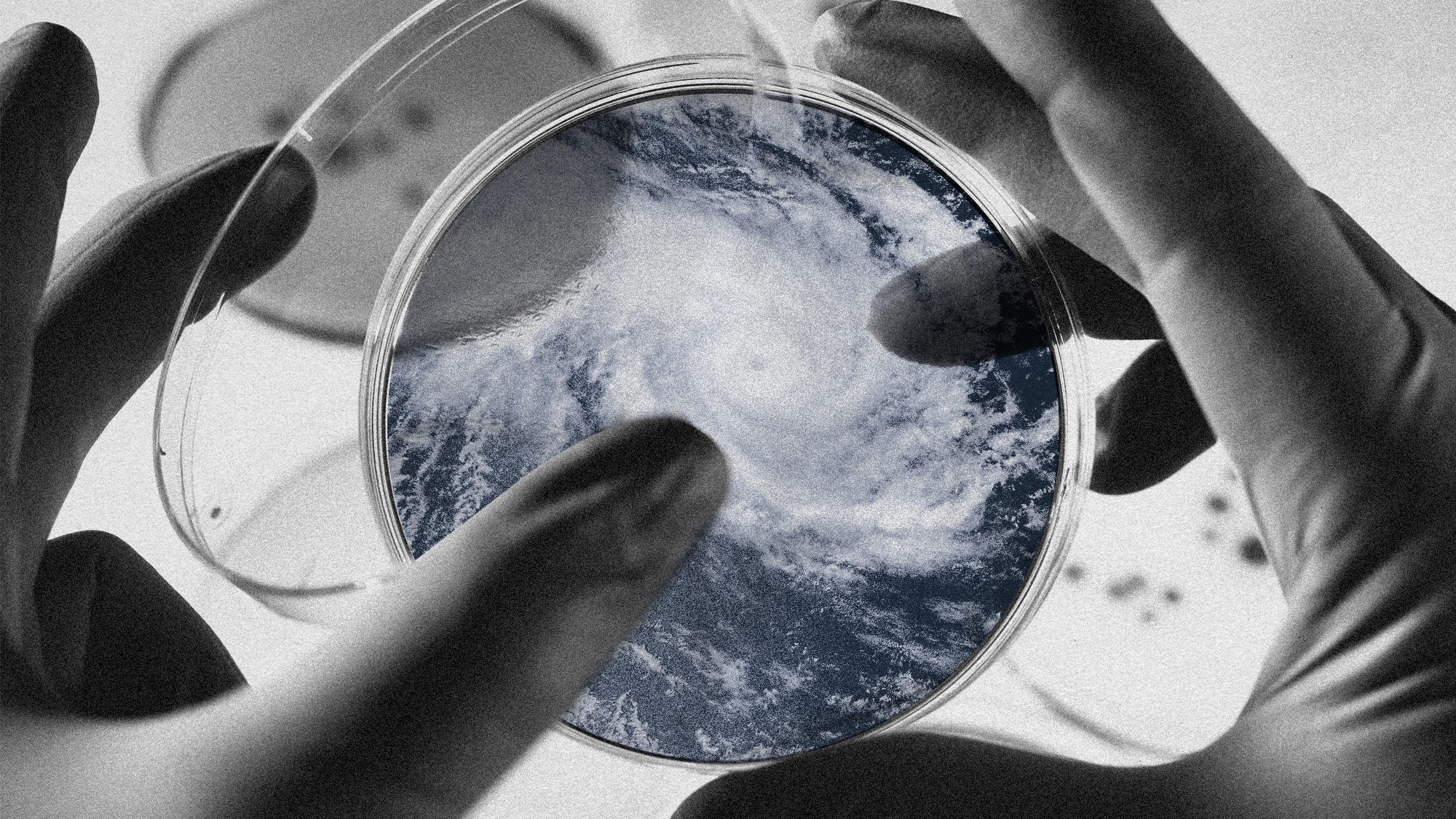The bacterial consequences of hurricanes
Floodwaters are microbial hotbeds, and outdated sewage systems are compounding the problem.


A free daily email with the biggest news stories of the day – and the best features from TheWeek.com
You are now subscribed
Your newsletter sign-up was successful
Hurricanes can cause whirlwinds of destruction, leaving behind damaged property and excessive flooding. The storms can also bring more microscopic threats. Following Hurricanes Helene and Milton, Florida saw a marked rise of the Vibrio bacteria in the floodwaters. The country's septic infrastructure has largely contributed to the spread of bacteria and other diseases in flood and waste waters, and those bacteria can cause life-threatening infections and some deaths.
Burgeoning bacteria
In 2024, Florida saw 81 cases of Vibrio vulnificus, the deadliest form of the Vibrio bacteria, according to the latest data from the state. Approximately half of these cases occurred after Hurricanes Helene and Milton ravaged parts of the state. These are the most cases seen in the past 10 years, and the bacteria's prevalence is expected to increase over time. "Flooding associated with hurricanes could very well lead to a redistribution of Vibrio further inland," John Drake, the director of the Center for the Ecology of Infectious Diseases at the University of Georgia, said to the BBC. While Florida saw the bulk of the cases, other areas affected by the hurricanes, like North Carolina, also had increases in floodwater bacteria.
"Vibrio prefers warmer waters, and hurricanes typically occur during times when the water is warmest," said Drake. Ocean temperatures and hurricane seasons are expected to increase because of climate change. "These conditions are really ideal for powerful proliferation of the Vibrio bacteria [as] these Vibrios generally grow well between 15 and 40 degrees Celsius (59 to 104 degrees Fahrenheit)," Rita Colwell, a professor at the University of Maryland Institute for Advanced Computer Studies, said to Newsweek. "As the temperature warms, their generation time shortens, and they divide faster and faster."
The Week
Escape your echo chamber. Get the facts behind the news, plus analysis from multiple perspectives.

Sign up for The Week's Free Newsletters
From our morning news briefing to a weekly Good News Newsletter, get the best of The Week delivered directly to your inbox.
From our morning news briefing to a weekly Good News Newsletter, get the best of The Week delivered directly to your inbox.
Vibrio bacteria are merely one of the bacterium that become prevalent during hurricanes. Gastrointestinal infections are "one of the biggest impacts of hurricanes and other tropical cyclones," said the BBC. Cases of cholera, for example, tend to increase following storm flooding. Wind can play a role in disease travel as much as water does. "The sheer force of the winds can disperse pathogenic bacteria, viruses and other microorganisms many kilometers into the atmosphere."
Sewage solutions
One of the largest contributors to floodwater-disease spread is the failure of the U.S. septic systems. "It is painfully evident that our antiquated stormwater and sewage systems cannot manage the downpours, tidal surges and rising sea levels that climate change is delivering," Henry Skinner, CEO of the AMR Action Fund, a venture capitalist fund that invests in the development of antibiotics, anti-fungals and other antimicrobials, said in a article for Harvard Public Health. It also "disproportionately affects poor and vulnerable communities," posing an environmental justice concern.
"To work properly, septic systems need to sit above an adequate amount of dry soil that can filter contaminants from wastewater," said The Washington Post. Unfortunately, it is becoming more difficult to meet this criteria as sea levels rise, leaving less dry ground in coastal and low-lying regions. To mitigate the problem, it is necessary to "modernize sewage infrastructure in hurricane-prone regions to mitigate the risk of infections," said Skinner. But doing so will "require years of planning and negotiating before a shovel breaks ground."
A free daily email with the biggest news stories of the day – and the best features from TheWeek.com
Devika Rao has worked as a staff writer at The Week since 2022, covering science, the environment, climate and business. She previously worked as a policy associate for a nonprofit organization advocating for environmental action from a business perspective.
